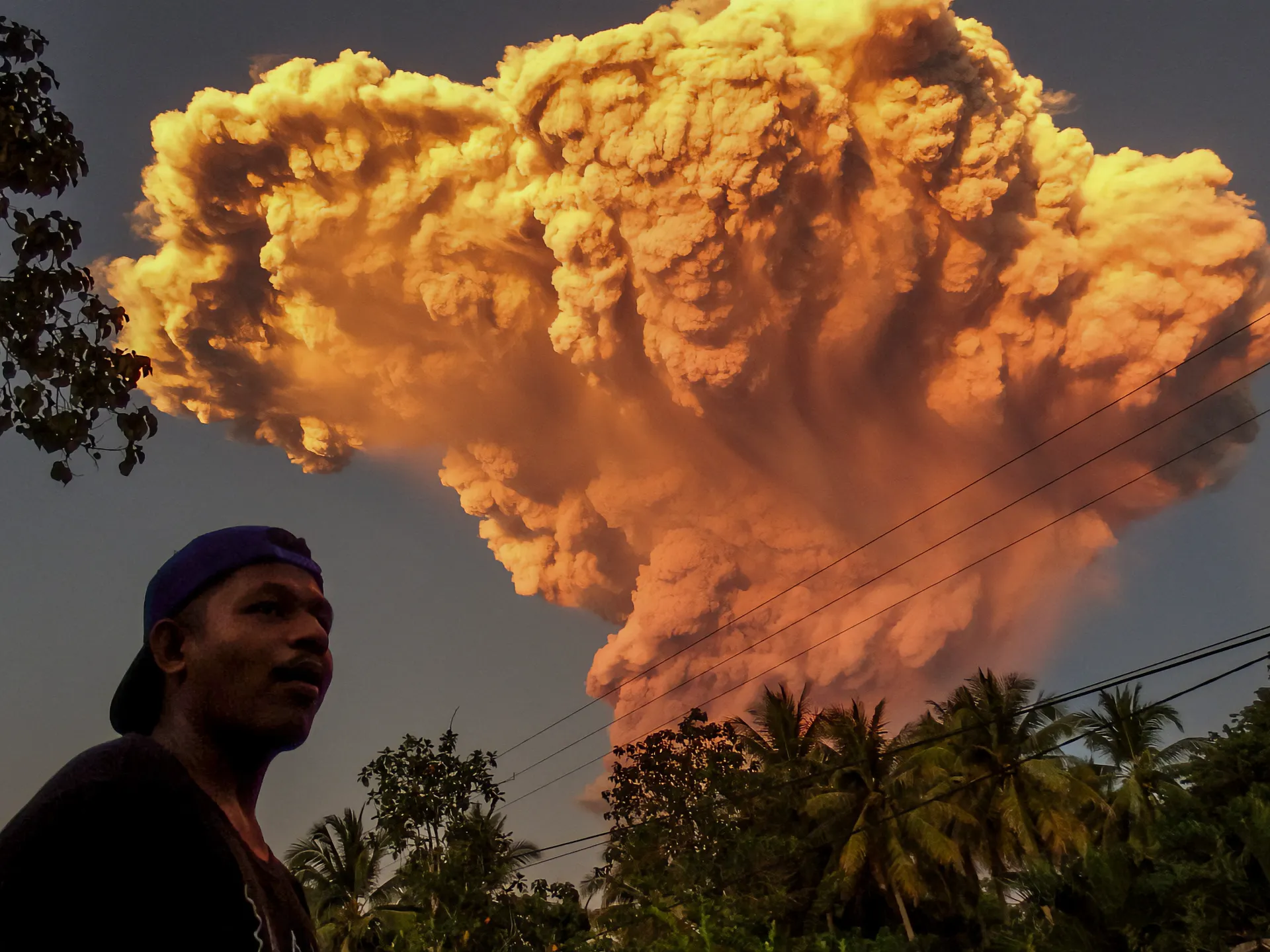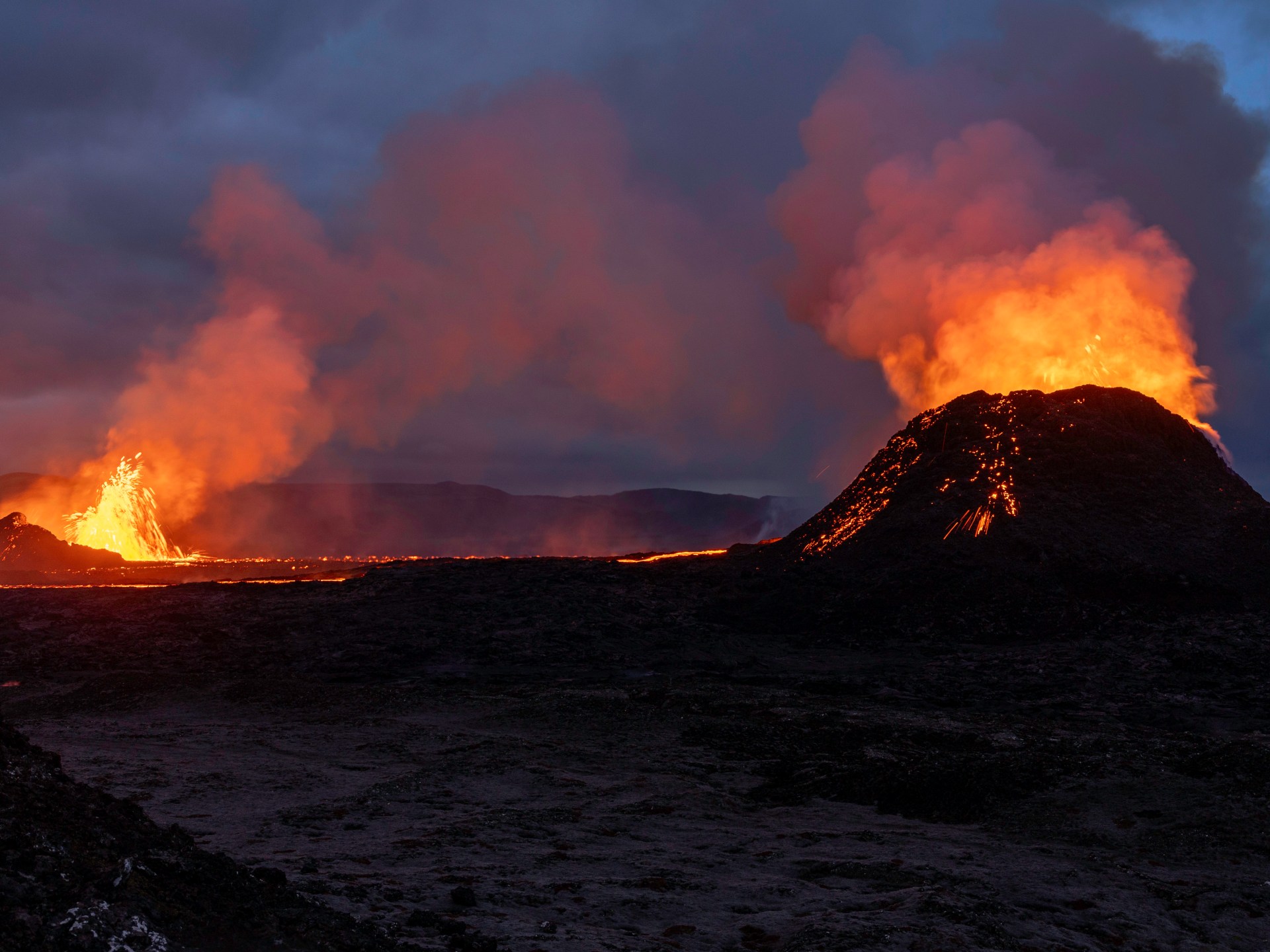Indonesia’s Mount Lewotobi Laki-Laki erupts, sends volcanic ash 10km high | Volcanoes News
Authorities warn locals and tourists to stay at least 6km away from the site of the volcano and to be ready for evacuation.
Published On 15 Oct 2025
Authorities in Indonesia have raised the volcano emergency alert to its highest level after Mount Lewotobi Laki-Laki erupted, spewing volcanic ash an estimated 10km (6.2 miles) into the sky.
There were no immediate reports of casualties or damage on Wednesday, but authorities have warned residents and tourists on the eastern Indonesian island of Flores to keep away from the mountain and prepare for possible evacuation.
Recommended Stories
list of 4 itemsend of list
“The public should remain calm and follow the local government’s directions and not believe issues from unclear sources,” the country’s Centre for Volcanology and Geological Hazard Mitigation said in an alert notice.
The volcano erupted at 1:35am on Wednesday (Tuesday 18:35 GMT) for about nine minutes, Indonesia’s Geological Agency said in a statement, after also erupting two hours earlier.
Muhammad Wafid, head of the Geological Agency, said people should stay at least 6 to 7km (3.7 to 4.3 miles) from the site of the eruption, which saw volcanic materials shoot 10km (6.2 miles) into the sky above the mountain’s 1,584-metre-high (5,080ft) peak.
“People living near the volcano should be aware of the potential volcanic mudflow if heavy rain occurs,” Wafid said, adding that the column of ash from the eruption could “disrupt airport operations and flight paths if it spreads” further.
Authorities have suspended operations at the local Fransiskus Xaverius Seda Airport in the town of Maumere some 60km (37 miles) west of Lewotobi, the airport said on Instagram. The airport will remain closed until Thursday.
In July, the same volcano erupted, sending an 18km-high (11-mile) cloud of ash into the sky and forcing the cancellation of flights at the international airport on the resort island of Bali.
Ten people living in local villages were killed and thousands of houses damaged when the volcano erupted in November 2024, according to reports.
Indonesia, which has more than 120 active volcanoes, sits on the Pacific “Ring of Fire”, an area of intense seismic activity stretching from Japan through Southeast Asia and across the Pacific basin.

